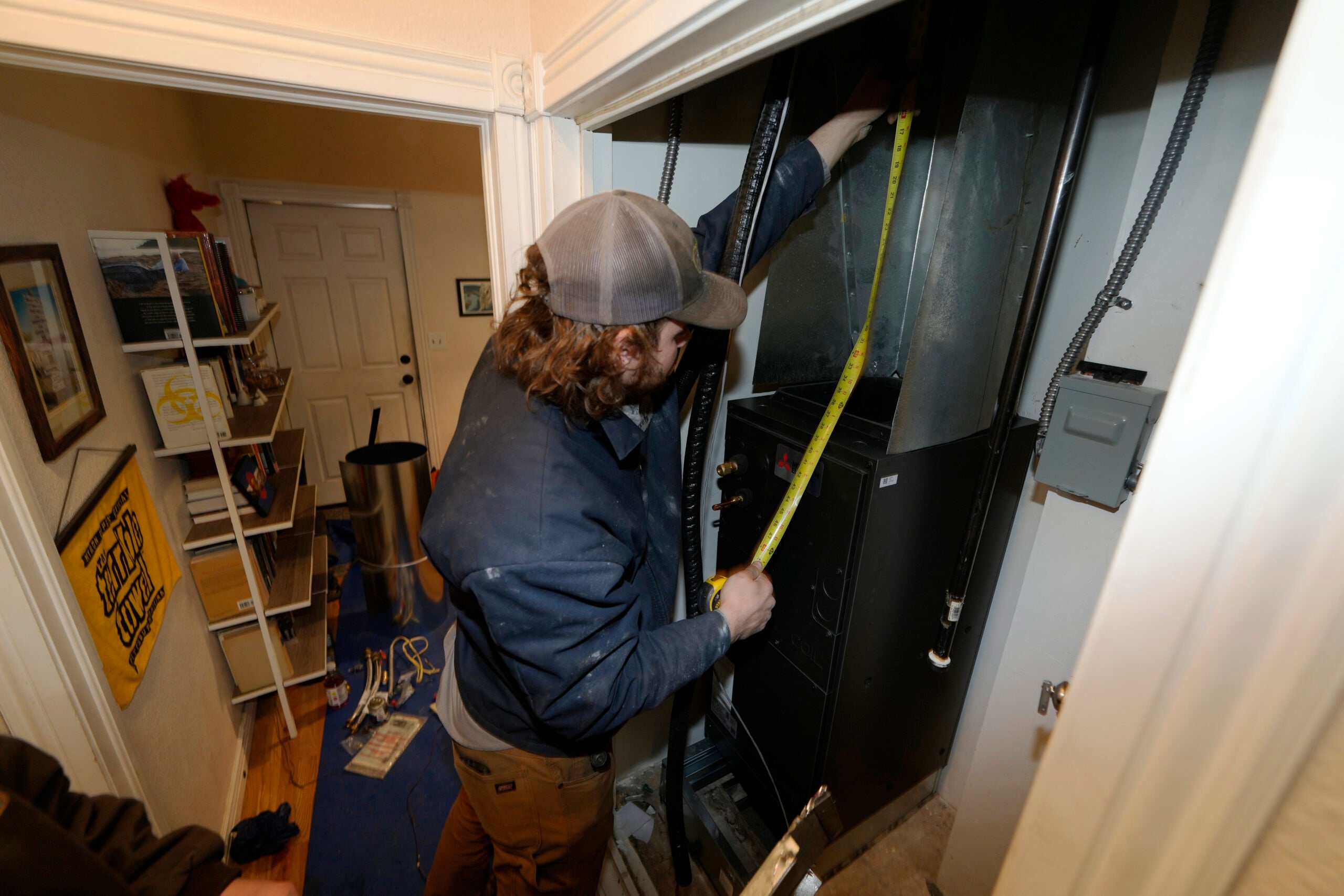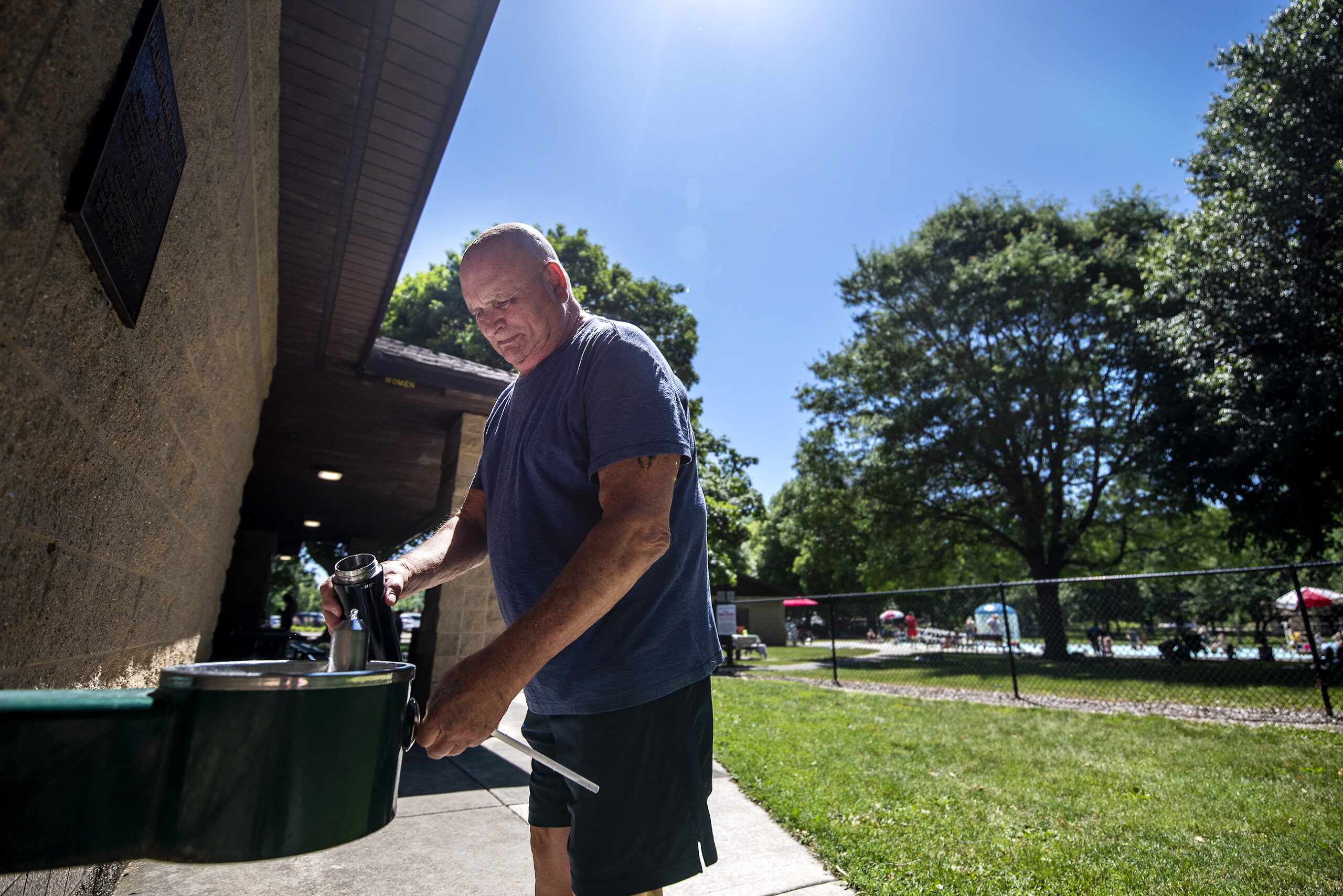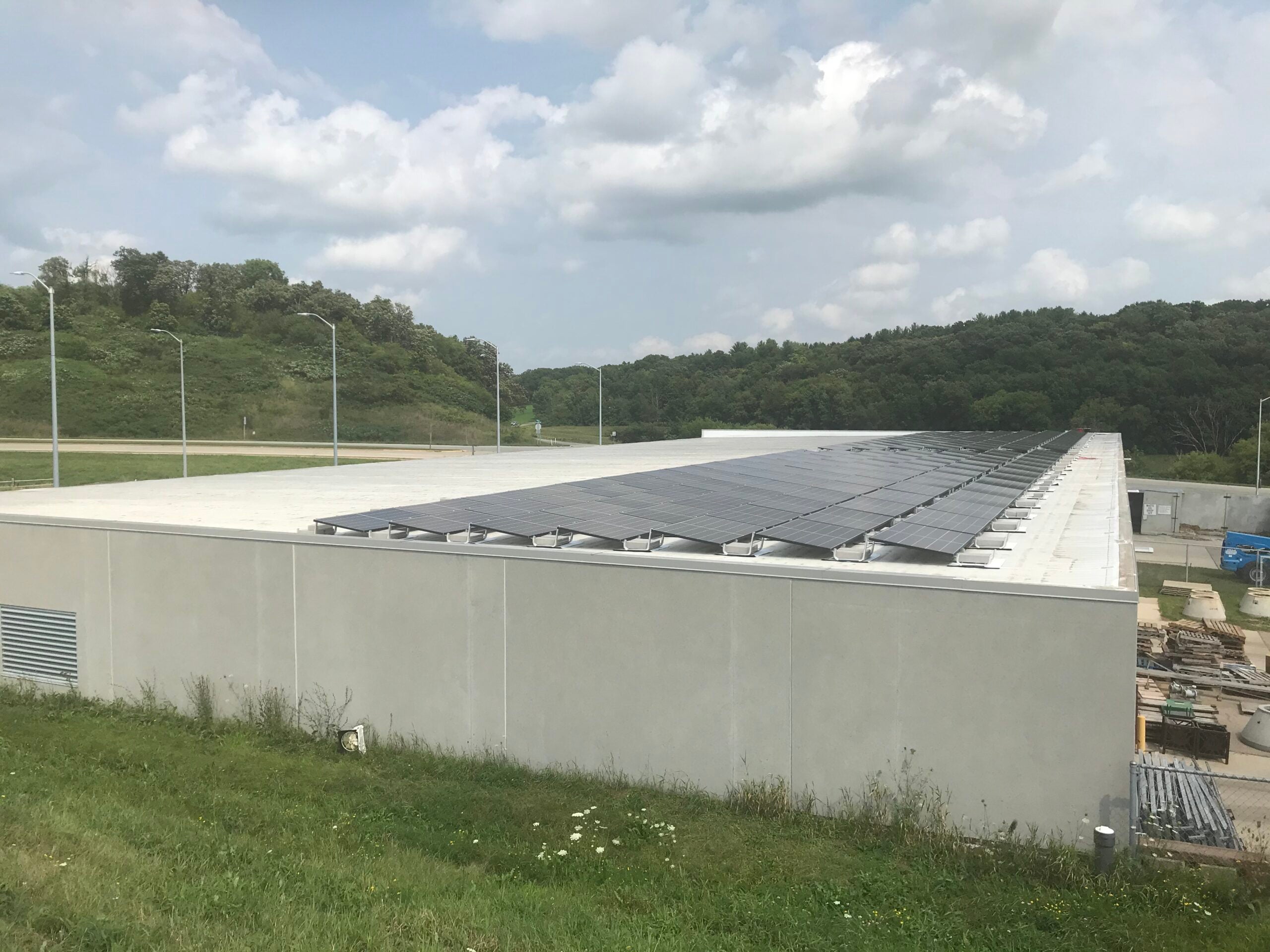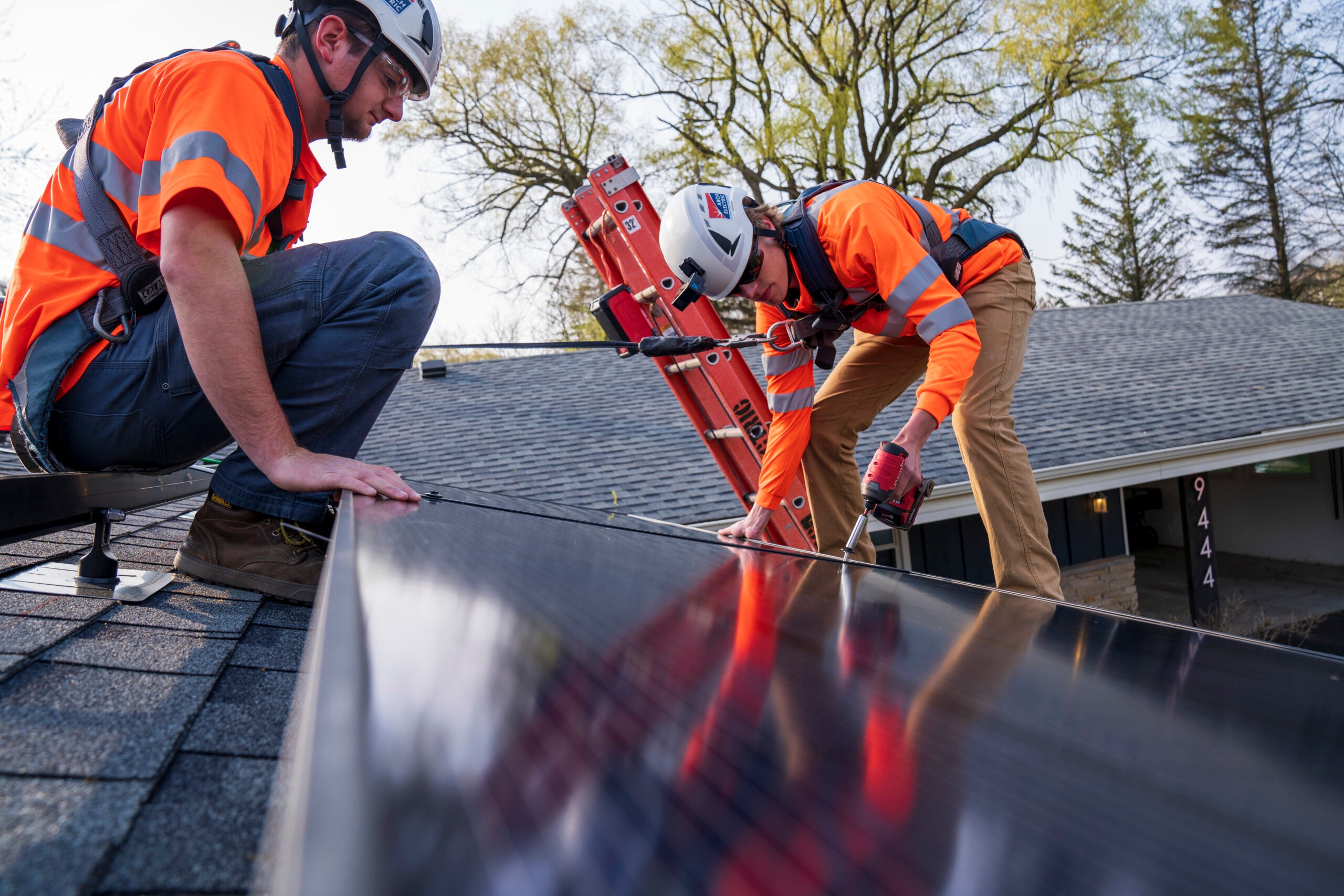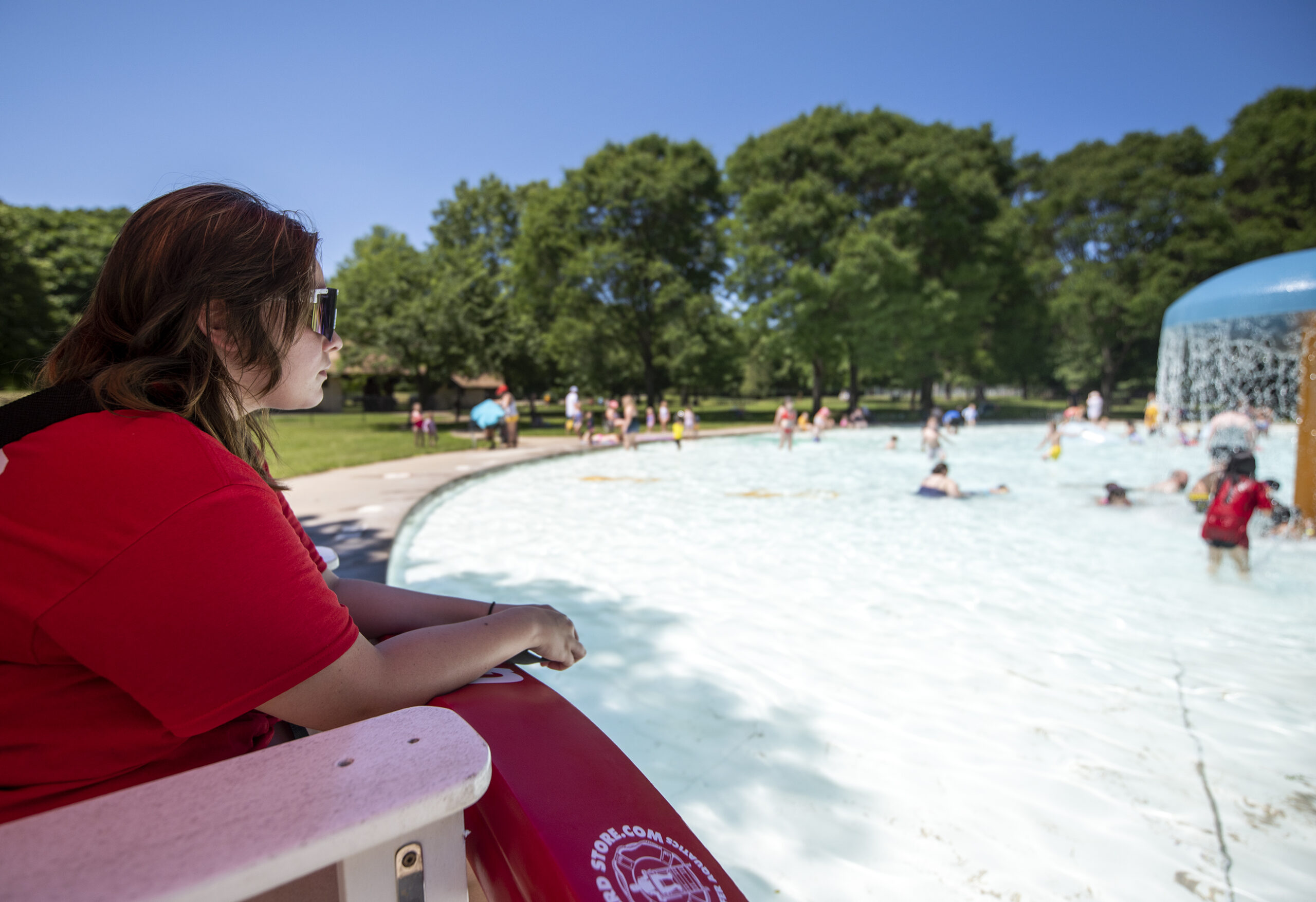As more government incentives become available to install energy efficient systems, electric-powered heat pumps are growing in popularity.
Last year, the sales of heat pumps surpassed gas furnaces for the first time, The New York Times reported last month. While gas furnaces generate heat, heat pumps use electricity to transfer heat.
But can heat pumps withstand Wisconsin’s frigid winters?
News with a little more humanity
WPR’s “Wisconsin Today” newsletter keeps you connected to the state you love without feeling overwhelmed. No paywall. No agenda. No corporate filter.
“We have proven that time and time again,” said Travis Herzog, a residential estimator and heat pump specialist for Midwest Heating and Cooling in Mukwonago.
Herzog recently joined Wisconsin Public Radio’s “The Morning Show” to discuss heat pumps. He talked about tax rebates, energy efficiency and maintenance.
The following was edited for brevity and clarity.
Kate Archer Kent: What is demand for heat pumps like in Wisconsin?
Travis Herzog: It’s pretty high. … We tend to get a lot of people who are going the solar route and trying to get off of natural gas. As that starts to come to a head, I think we’ll see more and more of it in the future.
KAK: Is it a misconception you find that people believe heat pumps won’t work in Wisconsin because it can be so bitterly cold?
TH: All the time… There is still some of that mentality. But technology has really come a long way, and we’re one of the people on the forefront of it trying to tell people, “No, it does work.”
KAK: What about heat waves? How can heat pumps handle the really hot weather?
TH: They’re even better than your traditional air conditioning system, because the ones we like to use (have) an inverter technology. … They can get 10, 20 or 30 percent of your energy costs and really adjust themselves. They’re extremely efficient in comparison to most standard air conditioners.
KAK: Are upfront costs for heat pumps more expensive than traditional, conventional furnaces?
TH: Yes and no. That comes down to the way the government has set up this rebate system. Initially, you’re going to spend a little more. But right now you can qualify for a $2,000 tax credit. Focus on Energy (offers) $1,300 dollars. So, right off the bat there is $3,300 that will come off of the system (cost).
KAK: What is maintenance like in these systems?
TH: Same thing as getting a standard tune-up. We just need to come out and check your pressure levels, check your refrigerant levels. Think about it like getting an air conditioning tune-up. It’s really not that much different.
KAK: Can you explain the distinctions between air-to-air, water-source and geothermal heat pumps?
TH: The air-to-air heat pump is going to be the traditional heat pump. It almost looks like an air conditioner. It draws the outdoor air and, depending on the temperature, (it is) either going to warm or cool that air and then send it through.
Your water-to-air-source heat pump is going to draw outdoor air and use a water-based system with a hydronic system that’s going to run through a forced-air system.
Then your geothermal is a ground loop that you’re going to have a drilling company drill. You’re going to run that through, again, a forced-air system. But that is a little bit more of an intricate process.
READ MORE: Utilities face challenges with extreme cold that threatens energy supplies
KAK: What do you see as the most popular option with customers?
TH: Air-to-air. There are only a few air-to-water source systems, and geothermals are either base-restrictive or cost-restrictive. So, the air-to-air is definitely the most popular.
KAK: What is the typical lifespan of an air-to-air unit you install now?
TH: A lot of people say 10 to 15 (years). I would say as long as they’re maintained and you keep up with them — ours come with a pretty good warranty — you could probably get 15 to 20 (years) out of them.
Wisconsin Public Radio, © Copyright 2026, Board of Regents of the University of Wisconsin System and Wisconsin Educational Communications Board.
